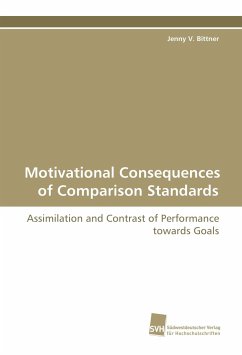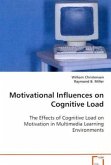This book offers a framework about the motivational consequences of comparison processes. Combining motivational theories and Social Cognition, goals are framed as comparison standards that influence subsequent goal pursuit. It is shown in which situations the comparison with goals leads to assimilation or contrast of task performance. It is also shown that similarity with a standard person influences whether people adopt a specific goal this standard person has. This offers a new perspective on automatic comparison processes as the initially perceived similarity with a comparison standard is found to explain the underlying mechanisms that lead people to adjust their task performance towards standards - or to contrast their performance away from standards. Four studies are presented that allow conclusions to be drawn about the standard-related knowledge that becomes selectively accessible during goal pursuit. These findings offer new insights into automatic motivational processesand demonstrate the influence of unintentional comparisons on goal pursuit.
Bitte wählen Sie Ihr Anliegen aus.
Rechnungen
Retourenschein anfordern
Bestellstatus
Storno








